Stray dogs and cats at risk of starvation during COVID-19 crisis in Thailand
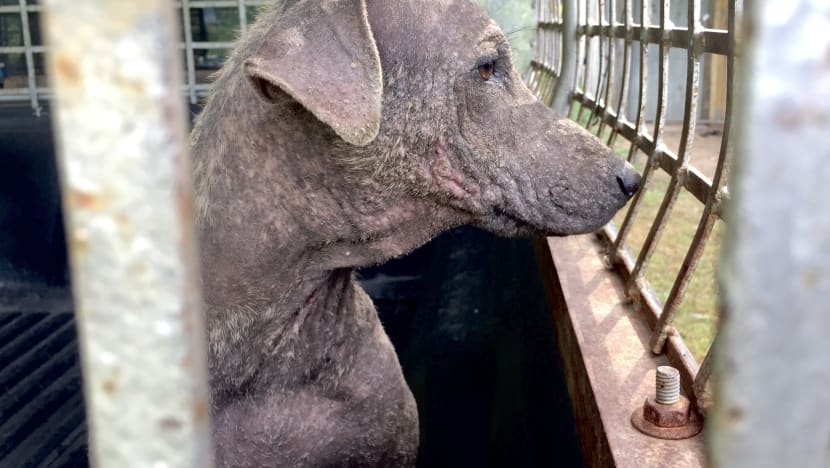
A stray dog in Phuket suffers from malnourishment and skin problems. (Photo: Pichayada Promchertchoo)
BANGKOK: Ozzy was dying when he was found in a forested area of Phuket last month.
His ageing body was weak, dirty and infested with ticks. His paw pads were bright red from inflammation. Two bullets were also lodged in his chest and back leg.
The dog did not even flinch when rescuers tried to save his life.
“We could see he was in an enormous amount of pain,” said Sam McElroy from Soi Dog Foundation – a Phuket-based non-profit organisation that has been helping street cats and dogs in Thailand since 2003.
"Ozzy had given up hope. This poor boy, 10-year-old probably, went into the jungle to die."
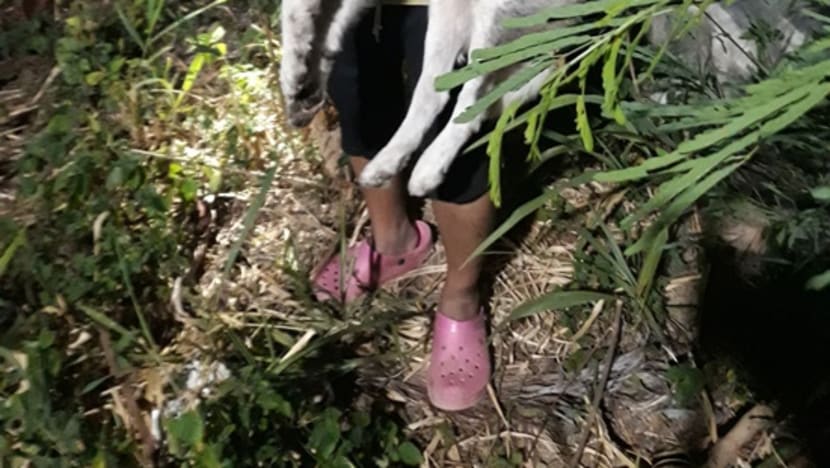
But Ozzy is one of the lucky few street dogs in Thailand that made it to animal shelters during the COVID-19 pandemic. The health crisis has not only affected people but also made it harder for nearly two million cats and dogs abandoned to survive on the streets.
Many of them risk starvation as those who usually feed them are unable to move around as freely as before due to the nationwide curfew and closure of various business venues. At the same time, the economic impact has put pressure on many residents.
“Community feeders have been the front line of relief, using their own personal resources and stretching themselves unbelievably, but they too are being impacted by the economic slowdown,” said Keren Nazareth from Humane Society International (HSI) – a global animal welfare organisation that rescues and protects cats and dogs in different parts of the world.
“HSI is urging governments across Asia to take proactive steps for their street animals, in order to avert great suffering, distress and deaths,” she added.
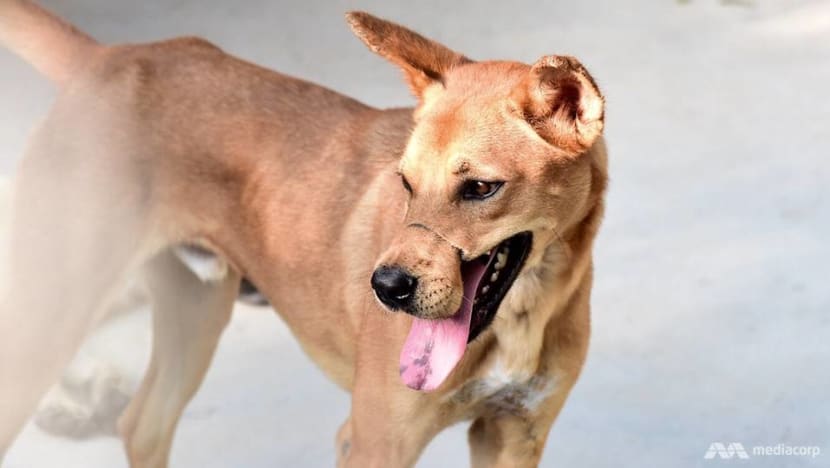
Earlier this month, Siam Commercial Bank's Economic Intelligence Center (EIC) estimated the number of unemployed in Thailand would hit 3 million to 5 million people this year as the country is “stuck in an unforeseeable economic turmoil” caused by the COVID-19 crisis.
In its April report, EIC said about 60 per cent of Thai households do not have enough financial assets to cover three months of expenses.
Although many workers may still be employed, they tend to be handicapped with lower working hours and lower income. Some may even make no income during some periods.
For stray cats and dogs, the sluggish economy and travel restrictions have greatly limited the help they need to survive. A number of them rely on caring members of the public who feed them food and water, while others feed from scraps left out by restaurants and small food vendors.
But as the Thai government tries to control the outbreak, many restaurants and food stalls have been forced to close their doors to discourage social gatherings.
“Governments around the world have no option but to call for and then extend lockdowns to protect people. However, what this has meant for millions of animals living on the streets is a sudden lack of their regular food and water supply from local communities, and this can quickly lead to animals starving,” Nazareth said.
READ: Isolated and alone, Australians turn to pets during COVID-19 shutdown
OVERCROWDING IN ANIMAL SHELTERS
The COVID-19 pandemic has a profound impact on abandoned pets in Thailand. Besides those on the streets, cats and dogs in animal shelters have also been affected.
Soi Dog Foundation is one of the facilities facing cancellations from regular donors. Although a drop in donations is expected during the health crisis, its operations director McElroy said the situation has proved “very difficult” especially for non-profit organisations that do not receive government funding.
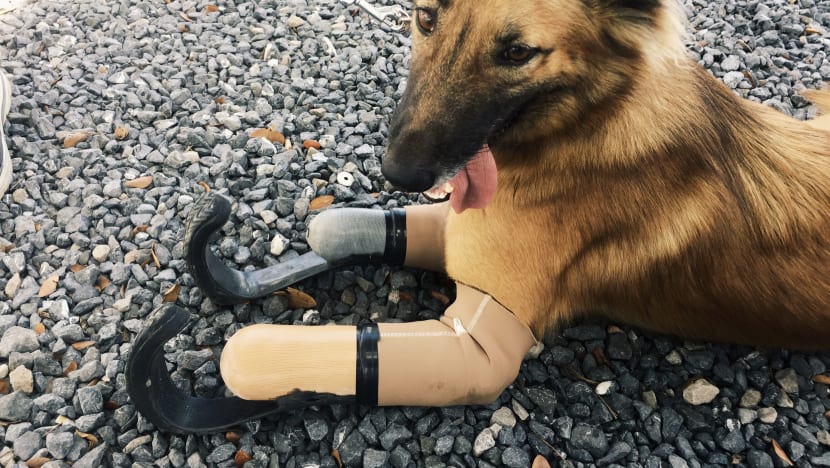
“We can only hope that the downturn doesn’t last too long. We are continually looking at innovative ways to raise funds but they are also difficult during this period,” he told CNA, adding the pandemic has also produced “a severe knock-on effect” on the shelter’s population.
READ: Overcrowded Thai dog shelter blames coronavirus for drop in donations
Last year, more than 400 animals at Soi Dog were adopted overseas and 500 others found new homes in Thailand. This year, however, the facility is facing severe overcrowding.
Travel restrictions imposed to control the global pandemic have stopped adopted cats and dogs from travelling to their new homes abroad. At the same time, the local adoption programme has slowed down due to economic uncertainty.
“We are full and are having to find money to create more space within existing grounds to be able to cope with the inevitable continuing intake of new cats and dogs, at least those who need to stay with us after treatment and recovery,” McElroy said.
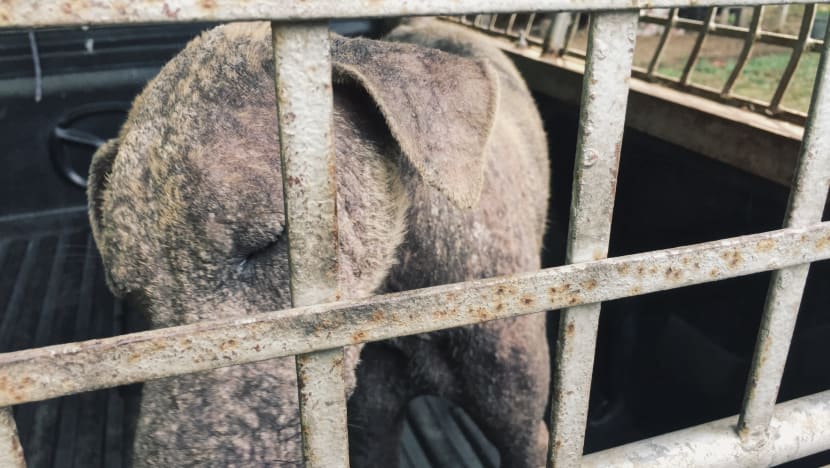
Since Apr 13, Phuket has placed all 17 sub-districts on lockdown to control the spread of COVID-19 in the province. Entering and exiting the province by land, sea and air has also been suspended until Apr 30.
According to McElroy, animal rescue has become more challenging as rescuers need special permits to reach different parts of Phuket during the lockdown. Staff members affected by the travel restrictions have to stay at the shelter to ensure that it can continue operating, as it is currently unable to accept volunteers from abroad.
LIVESTOCK DEPARTMENT WORKING WITH ANIMAL WELFARE GROUPS
Thailand has a large population of stray animals. Last year, there were nearly two million of them on the streets nationwide – an increase from some 800,000 in 2018 – according to Theerawut Suwathanathao from the Animal Welfare and Veterinary Service Division at the Livestock Department.
“The main cause of this problem is the owners’ lack of responsibility. People abandon their pets when they can’t take care of them or don’t love them anymore. The problem is the people, not the animals,” Theerawut said.
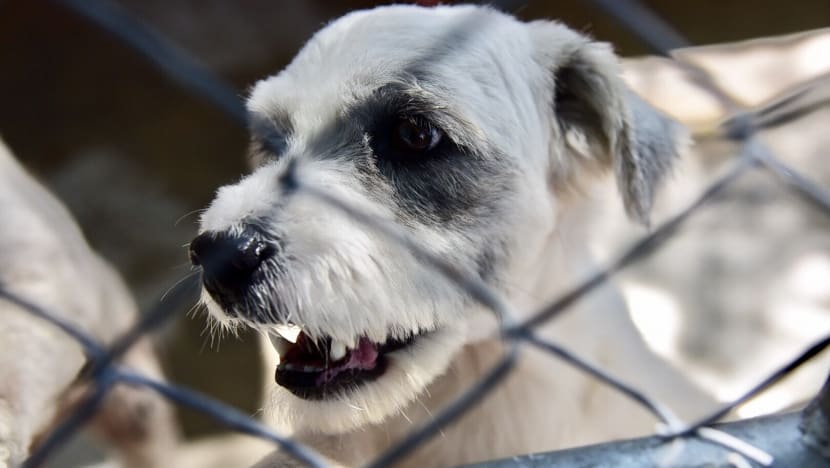
During the health emergency, he said the Livestock Department is working with animal welfare groups and shelters to secure food sources for abandoned animals. He believes the situation will improve in May, when officials are expected to resume services such as neutering and vaccination.
READ: Dogs in viral messages about breeding facility were not abandoned, owner is ‘winding down’ business, says AVS
Since the COVID-19 crisis emerged in Thailand, Theerawut said provincial livestock officials have not reported an increase in abandoned pets. But according to McElroy from Soi Dog Foundation, there have been some cases of abandonment he said could have resulted from financial problems.
“Soi Dog's recent appeal was to help raise funds to provide food for these animals on the island of Phuket,” he said. “Don't forget about stray animals during this time.”
As for Ozzy, he has made a significant recovery after weeks of intensive care and daily physiotherapy. Although the shelter is getting overcrowded, space has been created for him and more victims of neglect and abuse.
“Today, he is not only alive, but he is no longer in agony every time he tries to stand or walk.” McElroy said.
“Although he is a bit wobbly on his legs due to nerve damage, likely a result of bullet injury, Ozzy is finally happy and healthy.”
BOOKMARK THIS: Our comprehensive coverage of the coronavirus outbreak and its developments
Download our app or subscribe to our Telegram channel for the latest updates on the coronavirus outbreak: https://cna.asia/telegram












